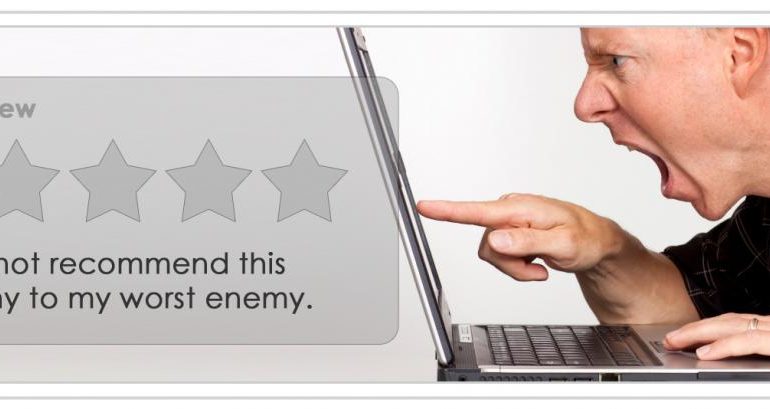Hotels can discover a lot about online credibility and marketing from other markets. Today, a terrific example of what not to do emerged, when breaking news online exposed that the University of California Davis has actually invested around $175,000 to tidy up its online credibility following an event in 2011 where school authorities pepper-sprayed trainee protesters.
The event took place Nov. 18, 2011, when Occupy demonstrators overlooked orders to leave the UC Davis school and university cops began gushing pepper spray into the crowd. The cops reaction triggered huge demonstrations on school, which got nationwide limelights and fired up a dispute about cops cruelty and usage of extreme force versus serene protesters.
The Sacramento Bee reported that the reaction stuck around for more than a year as the university ended up being involved in examinations and suits that stained the school’’ s credibility.
.“
“ We have actually worked to guarantee that the track record of the university, which the chancellor leads, is relatively depicted,” ” stated UC Davis spokesperson Dana Topousis. ““ We wished to promote and advance the crucial mentor, research study and civil service done by our trainees, professors and personnel, which is the core objective of our university.””
.
You can see merely by Googling UC Davis that their efforts had the reverse of the designated result:

““ I would state that it prevails for a person who may be making an application for a person or a task who has actually been incorrectly reviled to go to a business like Reputation.com, however for a public university that is moneyed through taxpayer funds, who has actually consistently entered a large hole, it is unexpected that they believed this might be done without the light of day shining on the act,” ” stated Doug Elmets, a Sacramento public affairs specialist. ““ It is another example of how out of touch the management at UC Davis is when it concerns their public viewpoint.””
.
Ultimately, this effort to remove errors in the public eye reveals that the pr and the administration group at UC Davis do not have an essential understanding of how the Internet works. Here are some takeaways from this ordeal for hotels:
.1. Absolutely nothing on the Internet disappears.
In the age of screenshots and caching, it’s not likely you’ll have the ability to reclaim anything you state online. this Gizmodo post utilized the Wayback Machine to make enjoyable of old variations of popular sites. Believe about how this might be utilized, must you choose to alter a policy published online. This method ended up improperly for this hotel, when personnel believed they might pretend that the policy never ever existed in the very first location. Innovation like the Wayback Machine guarantees that past and potential visitors can and will find evidence to the contrary.
The takeaway for hoteliers:.Do not attempt to eliminate errors or pretend they didn’t take place. In today’s digital age, you are not likely to be effective.
.2. Do not attempt to cover it up.
The UC Davis press ordeal is a great example of The Streisand Effect.
The Streisand Effect holds that an effort to conceal, get rid of, or censor a piece of info on the Internet typically has the unexpected effect of advertising the details more extensively.
In 2003, Barbra Streisand unsuccessfully took legal action against professional photographer Kenneth Adelman and Pictopia.com for offense of personal privacy. The US$ 50 million suit required the elimination of an aerial picture of Streisand’s estate from an openly readily available collection of 12,000 California shoreline photos. Prior to Streisand submitted her suit, “Image 3850” had actually been downloaded from the site just 6 times. 2 of those downloads were by Streisand’s lawyers. As an outcome of the case, public understanding of the image increased considerably. More than 420,000 individuals checked out the website over the following month. The expression “Streisand Effect” was created by Techdirt creator Mike Masnick to explain this phenomenon.
The takeaway for hoteliers:.Rather of attempting to conceal errors, be sincere with your visitors and do not hesitate to ask forgiveness.
.3. The Internet likes a train wreck.
At this point, it’s an excellent concept to bear in mind that the Internet likes a train wreck. Individuals will take notification if your conversations with a dissatisfied visitor continue to occur online. A great deal of times they share and see with their good friends, simply for the home entertainment worth. It’s the factor this GIF was developed:

.If at all possible to prevent more advertising the occurrence, #ppppp> You desire to prevent this. It is crucial to take conversations with visitors about unfavorable experiences offline ASAP. Get the discussion out of the general public eye, so you can discover a service independently without triggering an experience.
The takeaway for hoteliers:.When reacting to unfavorable remarks online, excuse the bad experience, describe the actions you’re requiring to repair the issue, and welcome the dissatisfied visitor to go over more offline.
.We’re all human.
Let’s admit it. We’re all human. Errors will be made from time-to-time. When that occurs, the very best method to react is to own up to the error, ask forgiveness, and do your finest to correct the circumstance.
.Wish to discover more about properlies to handle your online track record? CLICK HERE to download our guide, Responding to Reviews: A Guide for Hoteliers
The post 3 Takeaways for Hotels: How UC Davis Mismanaged its Online Reputation appeared initially on Revinate .
Read more: revinate.com
